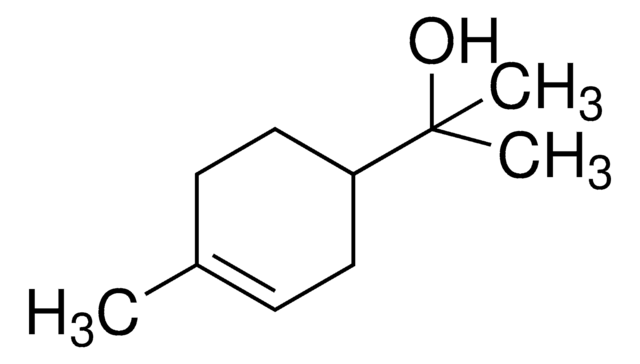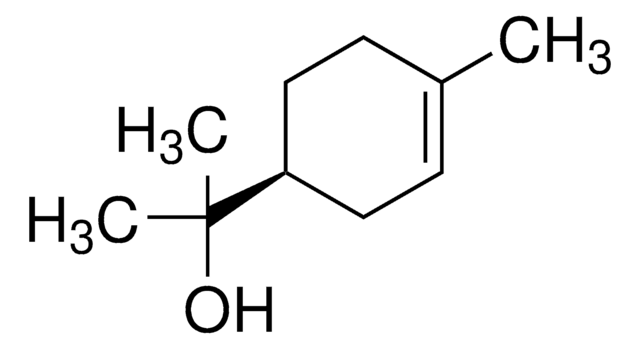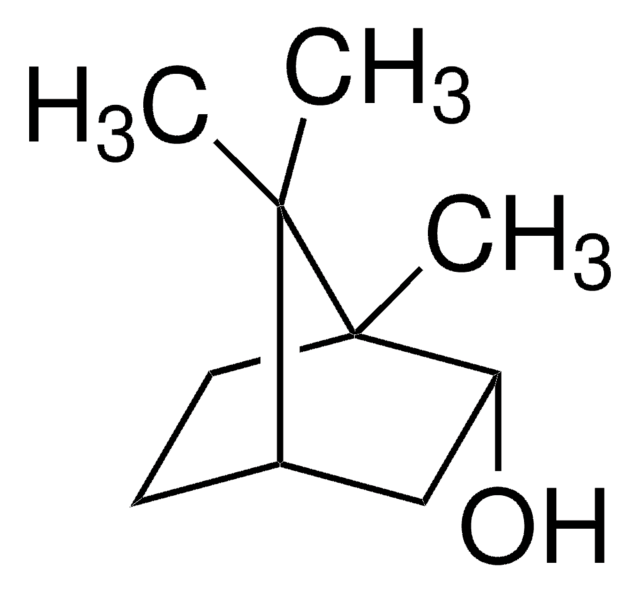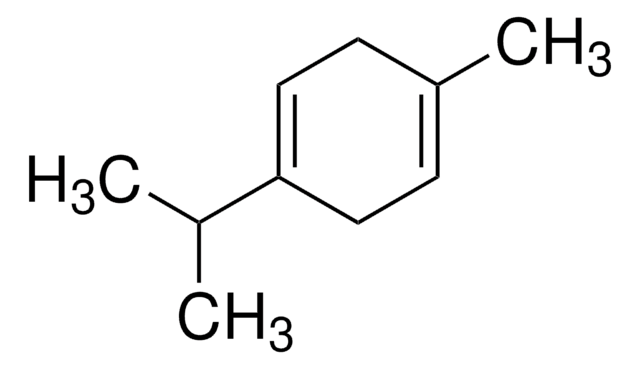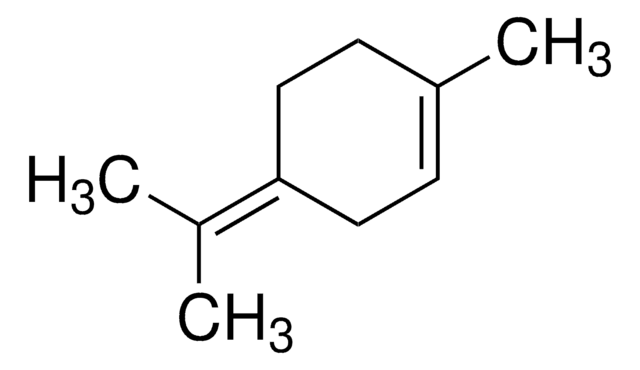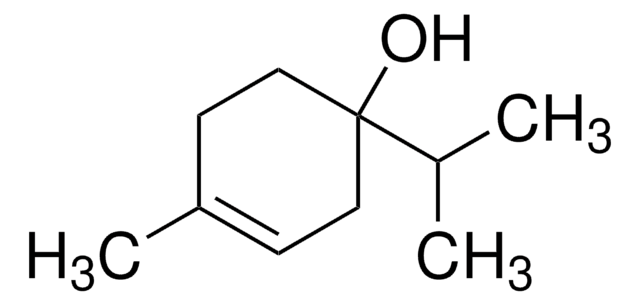About This Item
Recommended Products
grade
analytical standard
Quality Level
Assay
≥95.0% (GC)
shelf life
limited shelf life, expiry date on the label
impurities
≤1.0% water
refractive index
n20/D 1.482 (lit.)
bp
217-218 °C (lit.)
mp
31-35 °C (lit.)
density
0.93 g/mL at 25 °C (lit.)
application(s)
cleaning products
cosmetics
food and beverages
personal care
format
neat
SMILES string
CC1=CC[C@H](CC1)C(C)(C)O
InChI
1S/C10H18O/c1-8-4-6-9(7-5-8)10(2,3)11/h4,9,11H,5-7H2,1-3H3
InChI key
WUOACPNHFRMFPN-UHFFFAOYSA-N
Looking for similar products? Visit Product Comparison Guide
Related Categories
General description
Application
It may be used as a reference standard for the analysis of α-terpineol as trace volatile compound in wine by solid-phase extraction (SPE) followed by GC-MS and in essential oils and related compounds from aromatic plants by SPME and GC-MS.
Other Notes
Signal Word
Warning
Hazard Statements
Precautionary Statements
Hazard Classifications
Eye Irrit. 2 - Skin Irrit. 2
Storage Class Code
10 - Combustible liquids
WGK
WGK 1
Flash Point(F)
195.8 °F - closed cup
Flash Point(C)
91 °C - closed cup
Choose from one of the most recent versions:
Certificates of Analysis (COA)
Don't see the Right Version?
If you require a particular version, you can look up a specific certificate by the Lot or Batch number.
Already Own This Product?
Find documentation for the products that you have recently purchased in the Document Library.
Customers Also Viewed
Protocols
Effective analysis of passion flower by HPTLC fingerprinting, in conjunction with a comprehensive range of related reference materials, enables fast and efficient identification of this plant material.
Cinnamoµm Camphor, also known as the camphor tree, is grown in several parts of the world including Japan, Taiwan, and Australia. Camphor, which is used in medicinal and cosmetic preparations, is derived from the leaves and wood of this tree.
-Cymene; Linalool; Menthol; α-Terpineol; Menthyl acetate
-α-Bergamotene; β-Bisabolene; α-Terpineol; Neryl acetate; Geranyl acetate; Neral; Geranial
Our team of scientists has experience in all areas of research including Life Science, Material Science, Chemical Synthesis, Chromatography, Analytical and many others.
Contact Technical Service